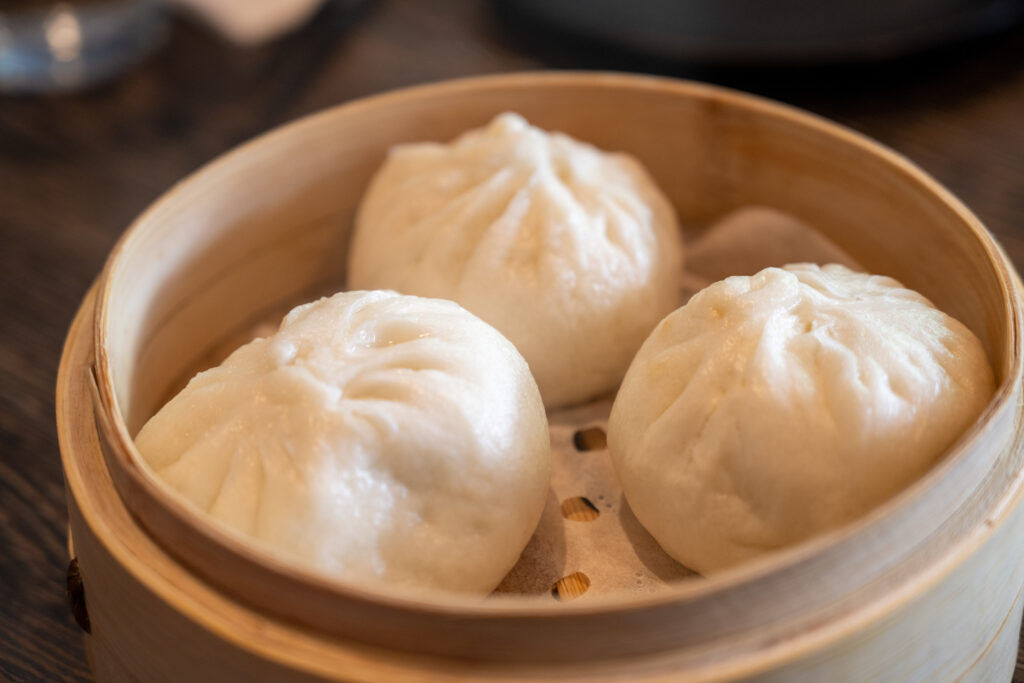Curry fans are being warned that curry sold nationwide at Walmart may contain an allergen that could be deadly to some customers.
The U.S. Department of Agriculture’s Food Safety and Inspection Service (FSIS) issued a public health alert Friday about the possible presence of soy and sesame in Wow Bao’s Thai curry chicken baozi, though neither allergen is listed on the ingredients label. Wow Bao makes baozi stuffed with a variety of Chinese ingredients, including kung pao chicken, as well as other international dishes, including Japanese teriyaki chicken and Mongolian spicy beef.
It’s this Thai-style dish that triggered an allergy alert from FSIS. According to the U.S. Food and Drug Administration (FDA), soy and sesame are two of the nine foods that cause the most severe allergic reactions in the United States. Other major allergens include peanuts, shellfish, eggs, milk, fish, wheat, and tree nuts. Allergic consumers can experience symptoms of varying severity, including tongue swelling, hives, and vomiting. But in the most extreme cases, consumers can suffer anaphylaxis and even death.

Thai chicken curry baozi are the subject of a public health alert due to the possibility that they may contain undeclared allergens. Pictured: baozi sold at a restaurant in San Ramon, California, in February 2023. Thai chicken curry baozi are the subject of a public health alert due to the possibility that they may contain undeclared allergens. Pictured: baozi sold at a restaurant in San Ramon, California, in February 2023. Smith Collection/Gado/Getty Images
According to FSIS, the issue with Wow Bao products arose from consumer complaints that boxes of Thai curry chicken buns actually contained another product. The warning explained that “products labeled as Bao curry chicken may actually contain teriyaki chicken bao products, which contain known allergens – soy and sesame – that are not listed on the product label.”
The product in question is a 10-ounce box of the company’s “BAO THAI-STYLE CURRY CHICKEN” containing four pieces with a “Best By” date of “4/12/25” printed on the side of the box. The product also has the number “P-40001” stamped inside the USDA mark of inspection.
The fully cooked frozen Bao Curry Chicken products were packaged on March 20, 2024 and then shipped to Walmart stores nationwide.
“There have been no confirmed reports of adverse reactions from consuming these products,” FSIS said, adding that “anyone concerned about illness should consult a health care professional.”

A box of Wow Bao Thai Curry Chicken, which is the subject of an FSIS public health alert. A box of Wow Bao Thai Curry Chicken, which is the subject of an FSIS public health alert.
While the improper packaging issue has been resolved, FSIS is concerned that some of the product may still be in customers’ home freezers. These products “should be discarded or returned to the place of purchase,” FSIS said.
Newsweek reached out to Wau Bao via email for further information and comment, but was not expected to receive an immediate response as it was outside normal working hours.
Consumers with questions about the public health alert can call Wow Bao’s vice president of strategic growth, Brandon Tammaro, at 888-496-9226 or email contactus@wowbao.com.
This public health alert is different from a formal recall, which involves removing products from shelves and urging customers to return items to stores.
“No recall was requested because the affected products are no longer available for purchase,” FSIS explained.
Recalls are issued when there is concern that a food may be harmful in some way, such as when testing reveals that the product is contaminated with deadly bacteria, or when there is a risk that the food may have been contaminated with a foreign object during the manufacturing process. There have been some high-profile recalls recently, such as an emergency recall when a manufacturer discovered that their raspberry cookies contained hazelnuts, which can be a deadly allergen for people with nut allergies.
Rare knowledge
Newsweek is committed to challenging conventional wisdom, seeking common ground and finding connections.
Newsweek is committed to challenging conventional wisdom, seeking common ground and finding connections.


